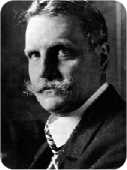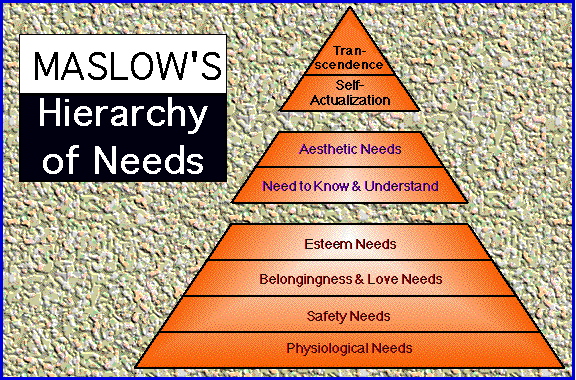|
Links |
|
Links |
|||
|
|
- Biography & Major Works |
|
|||
| INTRODUCTION | |||||
| Robert Michels was was a social philosopher who addressed issues related to the development of democracy, socialism, bureaucracy, leadership, & fascism | |||||
| Michels was a student of Weber, but studied Marx extensively thereby combining a bureaucratic & economic analysis to explain human behavior & social change | |||||
| See Also: Weber | |||||
| See Also: Marx | |||||
| While acknowledging that the econ is fundamental in understanding soc change, for Michels other soc forces are at play which precluded the dev of democracy, & socialism as he envisioned it | |||||
| Besides the econ, in the form of histl materialism, the fundamental
soc forces were:
a. human nature b. political dynamics c. organizational dynamics |
|||||
| In his most famous work, Political Parties, Michels demonstrates that because of the social forces of human nature, politics & orgs, democracy leads to oligarchy, which contains an oligarchic nucleus | |||||
| Michels embraces much of Marx but believes he missed the importance of leadership & oligarchy | |||||
| Michels is known for his development of the 'iron law of oligarchy' which holds that even democratically oriented orgs tend to become dominated by a few, i.e. an oligarchy | |||||
| See Also: The Iron Law of Oligarchy | |||||
| It is Michels' belief in the inevitability of oligarchy which is the foundation for his being categorized as an elite theorist | |||||
| Michels' work demonstrates the weaknesses of democracy, the strength of our tendency to be good followers, & our likelihood to have great faith in our leaders | |||||
| Ultimately Michels intended his work to be a cautionary tail, demonstrating the bureaucratic mechanisms which are available to limit oligarchy in bureaucracies | |||||
| MICHELS' RELATIONSHIP TO MARX | |||||
|
|
Like Weber & others, Michels wrestled w/ the ghost of Marx |
|
|||
|
|
And like Weber, he critiqued & elaborated Marx, & also embraced many of his ideas |
|
|||
|
|
Michels rejected what he called Marx's utopianism & yet retained many other elements such as his method of analysis including dialectical materialism & historical materialism |
|
|||
|
|
See Also: Dialectical Materialism |
|
|||
|
|
See Also: Historical Materialism |
|
|||
|
|
Michels & Marx recognized that many aspects of his econ interpretation of history had been embraced by those before them, such as the Arab philosopher Ibn Kaldun who lived in the 1300s |
|
|||
|
|
Michels & Marx recognized that the ideas of classes & class conflict had been embraced by those before them, such as Benjamin Disraeli (1804-1881) |
|
|||
|
|
Disraeli was one of the most important British political leaders of the 1800s & was prime minister of Britain in 1868 & again from 1874 to 1880 |
|
|||
|
|
Disraeli depicted the UK as having a great chasm btwn the upper & lower classes |
|
|||
|
|
For Disraeli, so great was the chasm btwn the classes that the UK could be viewed as 2 nations |
|
|||
|
|
Disraeli declared in parliament that the recognition of the proletariat's rights to its political emancipation & the betterment of its econ conditions was the only way to close the abyss that separated the '2 nations' |
|
|||
|
|
But Michels gives the greatest credit to Marx & Engels for the development of class analysis because they were the first to analyze the manner in which the productive forces play in history & the struggle btwn the classes |
|
|||
| Michels embraces Marx's histl mat, but rejects his utopianism in that he does not embrace his elements of finality or inevitable utopia of Marxist socialism | |||||
| For Michels, socialism is a wishful vision of the future, but he is silent on the outcome of class struggle as traced throughout history | |||||
| MICHELS' RELATIONSHIP TO PARETO | |||||
|
|
Michels & Pareto embrace Marx's historical materialism because it clarifies our understanding of moral & religious development which many inappropriately give an absolute character |
|
|||
|
|
Michels & Pareto embrace Marx's historical materialism because they recognized the independence of the econ & other social phenomena, while they lean in the direction of cultural Marxists, giving culture as much causative power as the econ |
|
|||
|
|
Michels & Pareto also parallel Marx's methodology which discredited those who want to explain facts w/ the ideas that people hold, i.e. they are all materialists, not idealists |
|
|||
| Like Weber, Pareto, & Mosca, Michels embraces Marx, but calls for a more pluralistic approach because reality is the result of the action of several forces of dissimilar nature | |||||
|
|
Michels retains elements of Marx's method of analysis | ||||
|
|
Michels feels that Marx was largely correct but that he had committed an error of omission when he ignored the functions of, & the theoretical implications of 'the master,' i.e. leadership | ||||
|
|
Classes, class conflict, & class & false consciousness are all essential categories in Michels' analysis |
|
|||
| Like Marx, he agrees that it is not oppressive conditions themselves but the recognition of those conditions that is the prime factor in class struggle | |||||
|
|
Michels does not intend to refute Marx's class theory, but he does attack his idea of a utopian future society as being a classless society |
|
|||
|
|
For Michels, the socialists might, & should conquer, but socialism as a classless society would fail as new classes emerge |
|
|||
|
|
FOR MICHELS, OLIGARCHY IS INEVITABLE, AN IRON LAW, WHICH DISPLACES DEMOCRACY |
|
|||
| Any group of people who try seriously to achieve any social purpose will end up serving a complex org which becomes an end in itself | |||||
|
|
Even if the original or ostensible purpose of the org was to establish democracy, it will become less demo & more bureaucratic |
|
|||
| See Also: Bureaucracy | |||||
| A demo organization will become an oligarchy, i.e. 'rules by the few' in that bureaucracy is a kind of oligarchy | |||||
|
|
Because even those orgs dedicated to the estb of demo cannot help becoming an oligarchy, it follows that other orgs will go the same way |
|
|||
|
|
The assumption which Michels dispels is that an org dedicated to establishing demo is less likely than orgs w/ other purposes to be undemocratic |
|
|||
|
|
If it can be shown in this most unlikely case of the demo org that oligarchy is inevitable, then it is safe to generalize & say that every org must be an oligarchy |
|
|||
|
|
This 'iron law' refers to the inherent tendency of all complex orgs, including radical or socialist political parties & labor unions, to develop a ruling clique of leaders w/ interests in the org itself rather than in its official aims |
|
|||
|
|
These leaders, Michels argued, came to desire leadership & its status & rewards more than any commitment to goals |
|
|||
|
|
Inevitably, their influence was conservative, seeking to preserve & enhance the org & not to endanger it by any radical action |
|
|||
|
|
Michels came to the conclusion that the formal organization of bureaucracies inevitably leads to oligarchy, under which orgs which originally were idealistic & democratic eventually come to be dominated by a small, self serving group of people who achieved positions of power & responsibility |
|
|||
|
|
The transformation into a bureaucratic oligarchy can occur in large orgs because it becomes physically impossible for everyone to get together every time a decision has to be made |
|
|||
|
|
Because all the people cannot or do not participate, a small grp is given the responsibility of making decisions |
|
|||
|
|
Michels believed that the people in this group would become enthralled w/ their elite positions & more & more inclined to make decisions that protect their power rather than represent the will of the group they are supposed to serve |
|
|||
|
|
In effect Michels was saying that bureaucracy & democracy do not mix |
|
|||
|
|
Despite any protestations & promises that they would not become like all the rest, those placed in positions of responsibility & power often come to believe that they too are indispensable, & more knowledgeable than those they serve |
|
|||

Robert Michels 1876 - 1936
Robert Michels was born in Cologne, Germany in 1876, of mixed German
and Belgian roots. His family background was Fr, It & Ger, & at
various times he wrote for journals in each of those languages. He was
a student of Max Weber. He studied at the Un of Halle, Marburg, in
UK, Fr & finally in Turin, Italy, where he met & befriended Gaetano
Mosca, the Italian social theorist who did so much to develop what is now
called 'elite theory'. He became professor & taught at the Un of Brussels,
Paris, Turin, Basel, Perugia & Florence. Michels became involved in
party politics, starting from the radical wing of the Ger Marxist party,
the SPD, to end in It as one of Mussolini's professors of Fascist political
science.
|
 |
||||
Political Parties.
|
|||||
Beetham, David, 'From Socialism to Fascism: the Relation Between Theory
and Practice in the Work of Robert Michels', Political Studies 25 (1977),
pp. 3-24
|
|||||
